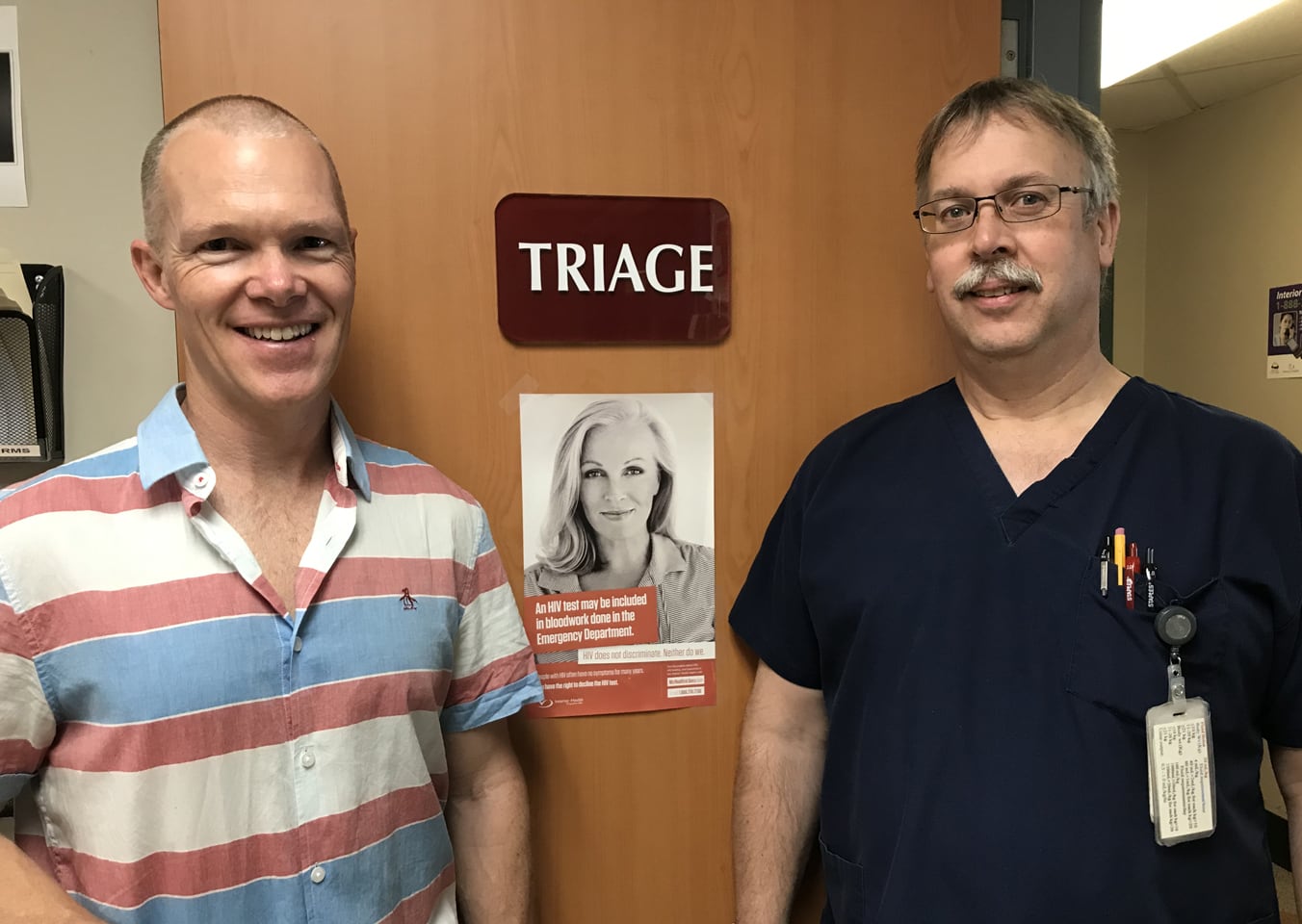HIV tests now part of most Emergency Department blood work
June 27 is National HIV Testing Day – an opportunity to remind everyone it is easier than ever to know your HIV status.
Since December 2018, when people come in to Interior Health emergency departments and require diagnostic blood work, an HIV test may be included.
Provincial testing guidelines encourage primary care providers to know the HIV status of all patients, not only those deemed at risk. The guidelines also advise that when people are sick, an HIV test should be included as part of blood work to determine a diagnosis, regardless of an individual’s HIV risk factors.
Over the last five years, Interior Health has implemented STOP HIV/AIDS, a provincial program to expand access to earlier HIV testing and provide support for individuals to start and sustain HIV medication. When people are consistently taking HIV medications their viral load drops to an undetectable level, protecting their health by preventing progression to AIDS and AIDS related premature deaths, and stopping transmission of the virus to someone else.
“Routine HIV testing in the emergency department is one of the latest tools being used in Interior Health to end the HIV epidemic. Routine testing at a point-of-contact in the health-care system is targeted to detect those 15 per cent of HIV-positive individuals who are unaware of their HIV status,” says Dr. Michael Murphy, medical coordinator for the STOP HIV/AIDS program in Interior Health. “I have personally treated patients who were unaware they were HIV positive and were diagnosed through testing in the emergency department.”
“We see patients coming to the emergency department and needing bloodwork who have deteriorated health, and that’s exactly the criteria to indicate that patients should have an HIV test ordered. We have the perfect opportunity to help detect the 15 per cent of patients that are currently unaware of their HIV positive status,” says Dr. Jeff Hussey, an emergency department physician.
As with other routine blood work, patients who do not wish to have the test during their emergency visit may decline. There continues to be stigma regarding HIV so it is important to ensure the decision to opt out of the test is not due to misinformation.
The made-in-B.C. STOP HIV/AIDS initiative includes outreach to marginalized groups; expanding access to early testing to diagnose those living with HIV in order to improve health outcomes and reduce transmission; and immediate and universal access to free antiretroviral therapy for all who are diagnosed HIV positive.
To protect those at highest-risk of acquiring HIV in B.C., government expanded access to pre-exposure prophylaxis and post-exposure prophylaxis in 2018 – a preventive treatment now available at no cost through the BC Centre for Excellence in HIV/AIDS to eligible individuals including men who have sex with men, transgender women, and any other people with ongoing relationships with HIV-positive sex partners who are not on regular HIV medication or have a low viral load, and people who share drug use equipment with a partner known to be living with HIV.

























